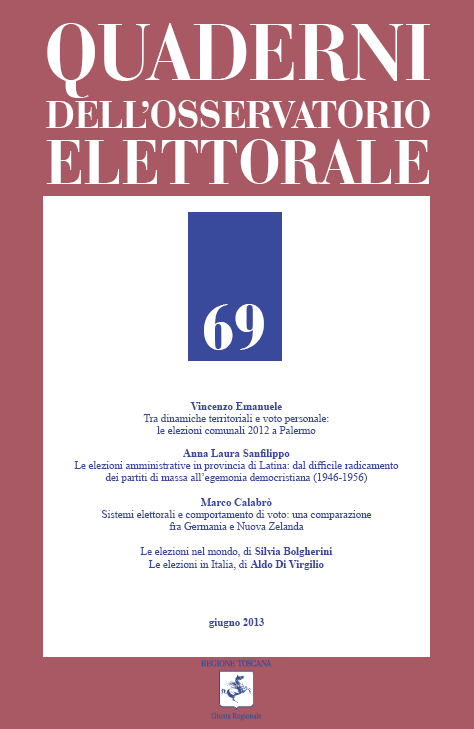Published 2013-06-30
How to Cite
Abstract
The article analyses the impact of mixed-member proportional electoral systems (MMP) on the party systems and electoral behaviors in Germany and New Zealand. The MMP grants proportional representation while reducing party fragmentation. The latter effect is stronger in Germany than in New Zealand, due to a difference in the electoral thresholds. Mixed member systems that allow citizens to cast two ballots for two different competitive arenas are much interesting for analyzing the impact of electoral systems on electoral behaviors. A voter can choose to split her vote, thus supporting a party in the multimember constituency and the candidate of another party in the single-mandate constituency. MMP is not theoretically supposed to strongly favor such choice. Yet, in the two countries many citizens split their votes; thus, in single-mandate constituencies votes typically concentrate on fewer candidates than in the proportional arena. This seems to be particularly the case in New Zealand. Voters act strategically while splitting their vote. There are evidences that this can be due both to a seat maximizing and to a localistic logic. Evidences are stronger for the latter.

